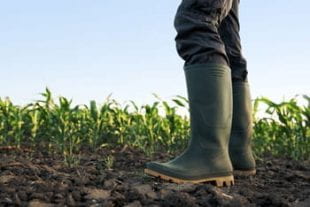Rice’s Baker Institute for Public Policy has initiated a working group to develop a United States protocol for paying ranchers and farmers to store carbon in their soil. The current system for voluntary carbon transactions is broken and needs to be fixed, group founders said.
The group is co-led by attorney Jim Blackburn, a professor in the practice of environmental law at Rice, Baker Institute Rice Faculty Scholar and co-director of the university’s Severe Storm Prediction, Education and Evacuation from Disasters Center (SSPEED), and Kenneth Medlock, the James A. Baker III and Susan G. Baker Fellow in Energy and Resource Economics and senior director of the Center for Energy Studies at the Baker Institute. Robin Rather, CEO of Austin-based Collective Strength, is the group’s facilitator.
Most accepted carbon transactions in the world today occur based on standards that originated from the Clean Development Mechanism of the Kyoto Protocol to the United Nations Framework Convention on Climate Change. These standards impose significant and unnecessary impediments to U.S. landowners, so few or no transactions actually happen, Blackburn said.
“We formed this group out of necessity,” Blackburn said. “While there are specifics of the existing standards that are useful, an overall new approach is needed, and the Baker Institute was willing to act as our host in convening this working group. We have assembled a diverse group that I feel sure will develop an excellent, defensible concept.”
There are many ranchers and farmers in the southwestern and central U.S. whose land has substantial potential to remove carbon dioxide from the atmosphere, according to the working group. However, they are being kept from participating by the current standards for voluntary carbon trading — standards that were not developed to optimize carbon storage in the soil, the group said. The need for a defensible new standard has led to the formation of the group, Blackburn said.
“This protocol is intended to enable a market system for the voluntary trading of carbon removal and storage in the soil,” Medlock said. “This is an exciting idea that has the potential to add a scalable alternative into the portfolio of companies looking to reduce their carbon footprint.”
Natural photosynthesis removes carbon dioxide from the atmosphere and stores it in the wood of trees and the soil of the country’s prairies and coastal marshes and soils of agricultural lands. “In the United States, the potential exists for the removal of 1 to 2 billion tons of carbon dioxide or more by these natural systems, yet to our knowledge, only one grassland project has been approved in the U.S. for carbon sales,” Blackburn said. “As we move toward attempting to avoid, minimize and remove the U.S.’s 7-billion-ton carbon dioxide footprint from the atmosphere, we are going to need a range of alternatives that remove and store carbon.”
Through carbon farming, farmers and ranchers could reap an additional source of cash flow, one that also would help restore native ecological systems that would generate fish and wildlife benefits, according to the working group. Additionally, industries and businesses that emit carbon dioxide will be provided with a scalable and affordable carbon dioxide removal process. “If enabled, this system will be a win-win on many levels,” Blackburn said.
Over the next several months, the working group will convene to discuss topics such as general principles of eligibility, measurement protocols and buyer needs. The goal is to develop a set of principles for these transactions that will be endorsed by the diverse group of 45 stakeholders from nongovernmental organizations, governmental entities, Native American nations, corporations, universities and consulting firms.
The 45 stakeholders include but are not limited to experts from Gensler Inc., King Ranch Inc., the Nature Conservancy, Audubon Texas, Applied Ecological Services Inc., Texas Parks and Wildlife, the Texas Coastal Exchange, the New Mexico Department of Agriculture, GSI Environmental Inc., Texan By Nature, the USDA Natural Resources Conservation Service, the Lone Star Coastal Alliance, the Quivira Coalition, Sprint Waste Services, the Dixon Water Foundation, Climate Action Texas, the Cynthia and George Mitchell Foundation, Valero Energy Corp., the U.S. Business Council for Sustainable Development, the U.S. Environmental Protection Agency, America’s Wetland Foundation, the Soil Value Exchange, the Western Landowners Alliance, Batker Consulting, the Meadows Foundation and the Savory Institute, as well as the Baker Institute, the SSPEED Center, Rice’s Energy and Environment Initiative and Earth sciences department, and several subject matter experts.
When completed, the working group’s concept will be available and open to anyone who wants to buy or sell carbon.


